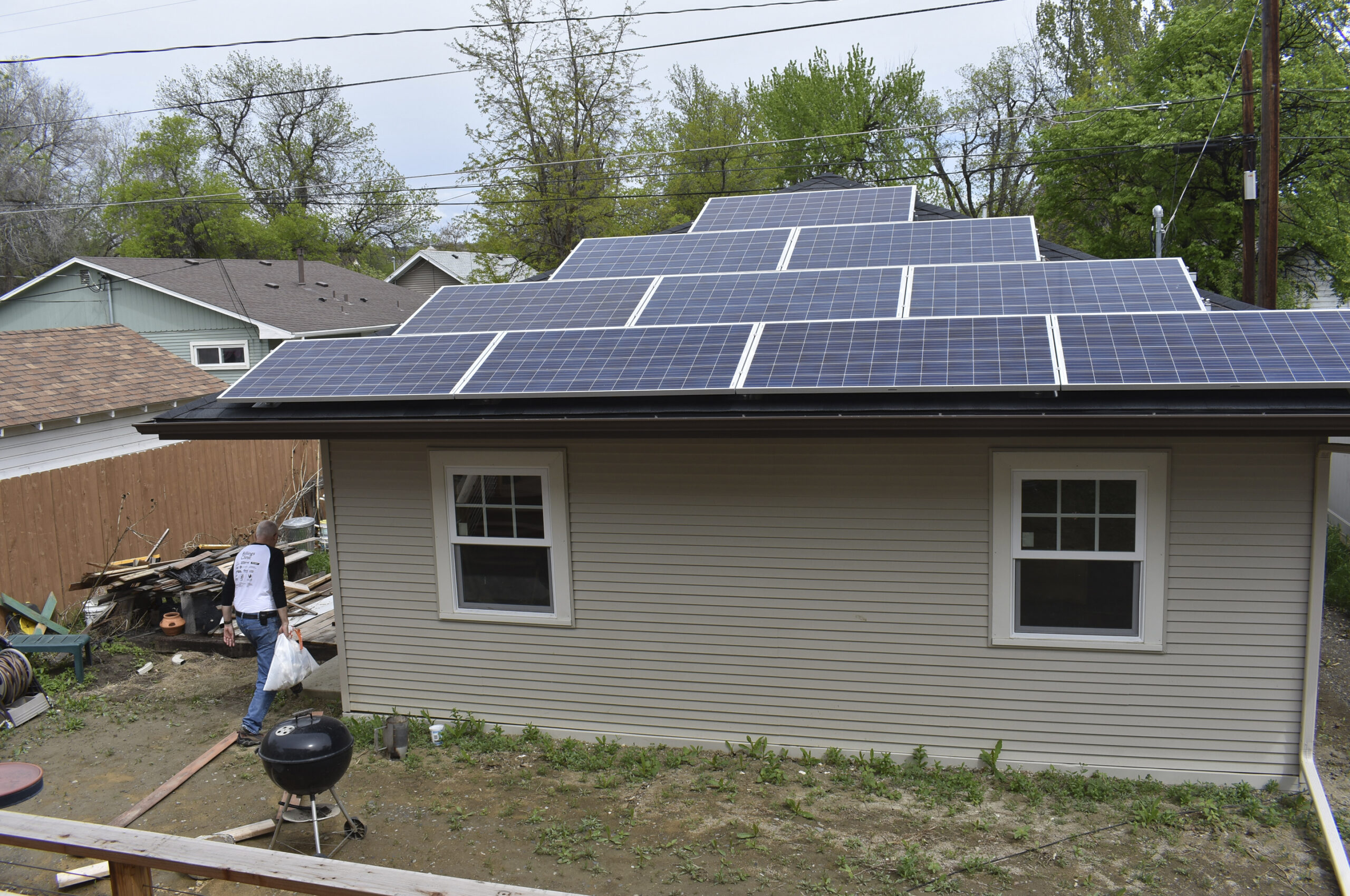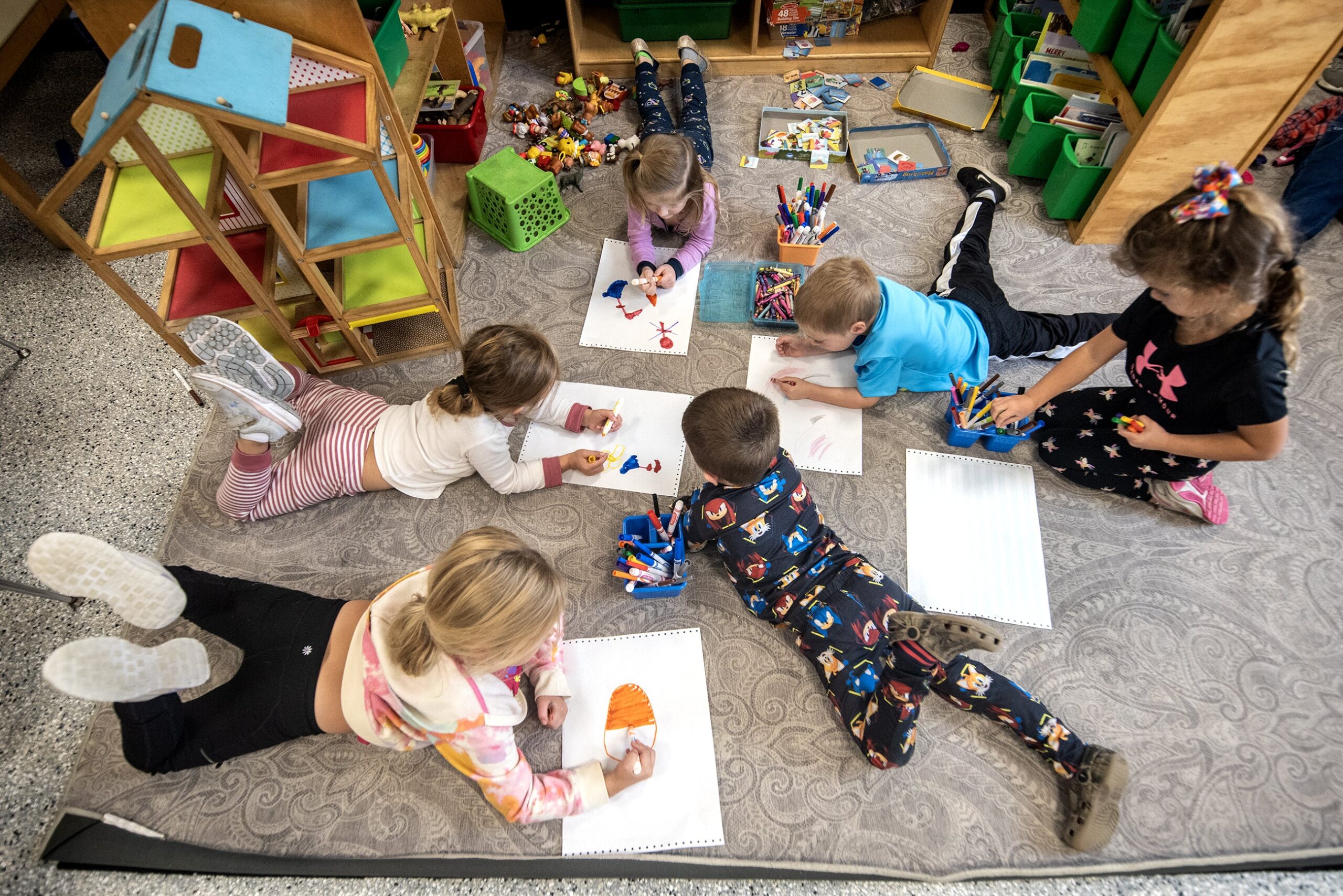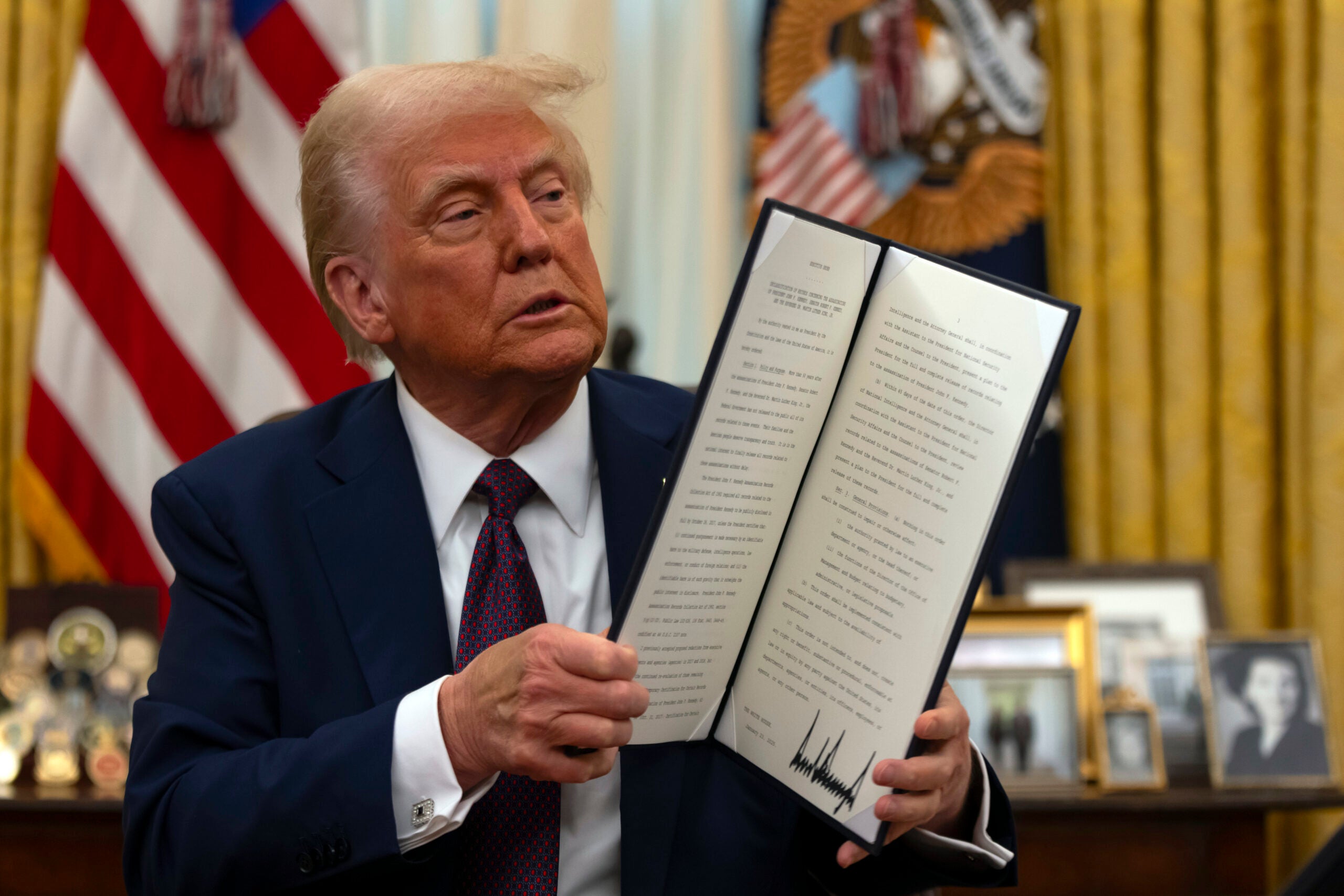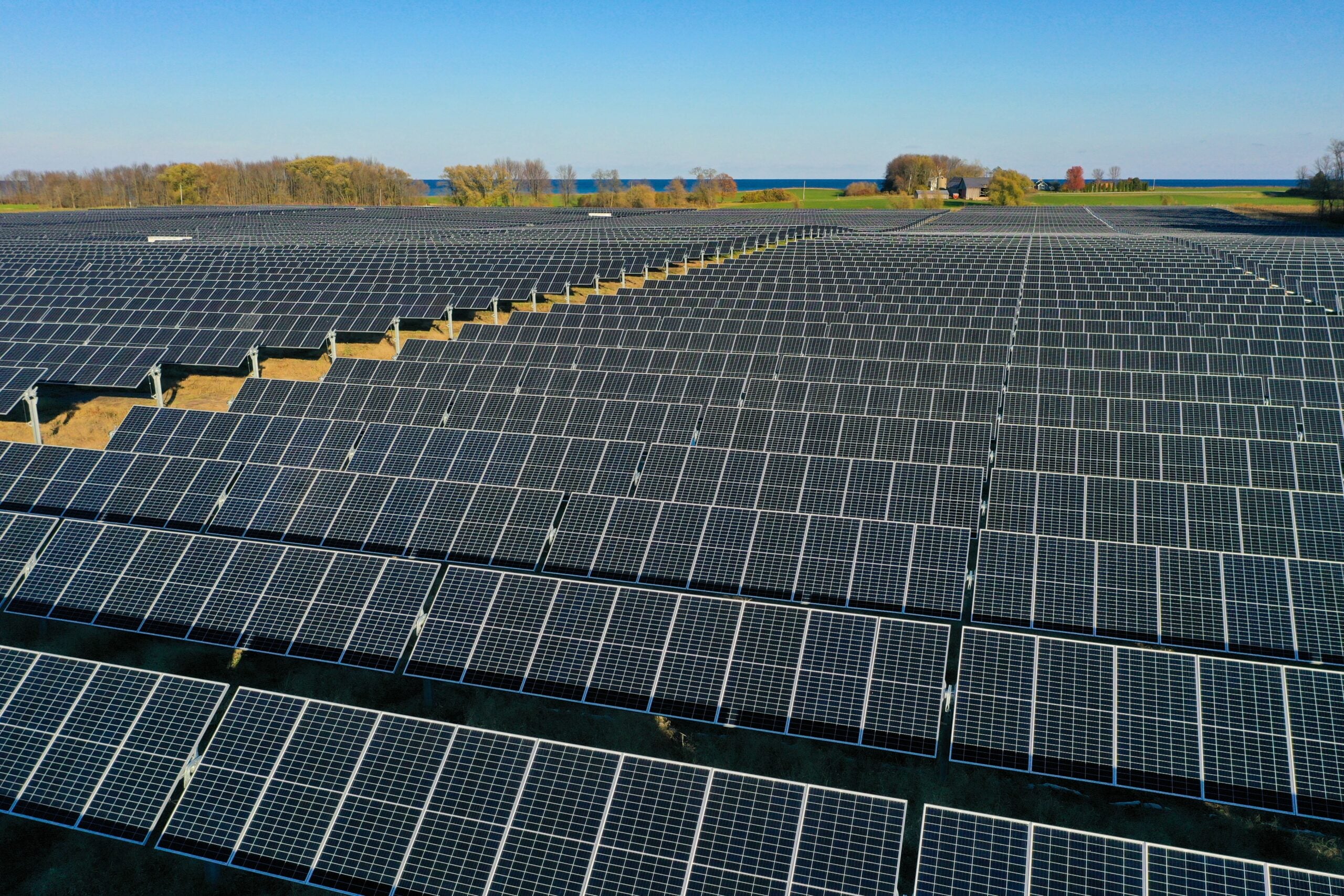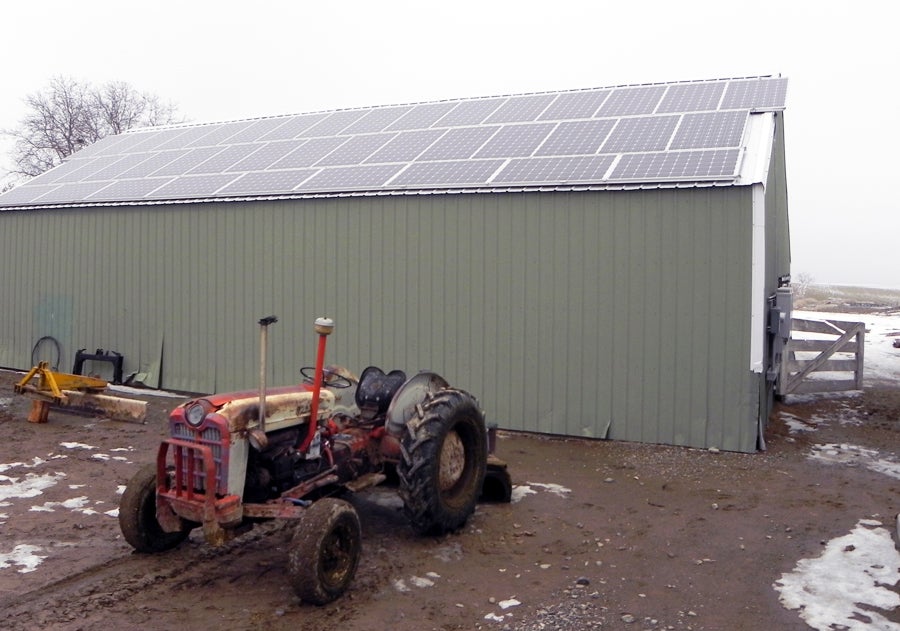A program to help low- to moderate-income households in Wisconsin access solar power is in limbo after the federal government paused previously-approved funding for it last month.
The Wisconsin Economic Development Corp. was awarded a $62 million grant last April from the U.S. Environmental Protection Agency’s Solar for All program, funded through the Inflation Reduction Act.
The state agency planned to use the money to deploy rooftop residential solar and community solar projects that support low- and moderate-income families. It hoped to begin funding projects this year.
Stay informed on the latest news
Sign up for WPR’s email newsletter.
WEDC’s funding application had support from a coalition of investor-owned, municipal and cooperative utilities, as well as community organizations and local governments, according to Sam Rikkers, chief operating officer for WEDC.
After his inauguration last month, President Donald Trump signed an executive order telling federal agencies to pause the disbursement of funds appropriated through the Inflation Reduction Act.
On Jan. 28, the EPA sent letters to Solar for All recipients telling them their grants had been paused until further notice.
Rikkers said Monday afternoon that WEDC has been in regular contact with the federal government but “received communication that has really led to a lot of uncertainty” around the Solar for All program.
“We are working every day to make sure that we’re staying on track with our work on Solar for All,” he said. “We’re not seeing the money with certainty coming to us as we expected it to.”
Rikkers said the agency does not know when money could be released, but will to continue the planning process. WEDC still hopes to begin making investments through the program by this summer, he said.
“We will continue to, on a regular basis, make sure that we are holding up our end of the bargain on our Solar for All agreement with EPA,” he said. “We expect that EPA will hold up its end of the bargain and need some time, we hope, to work out the uncertainty that it’s working through.”
He declined to say whether WEDC would be able to move forward with the program without the federal funding, but said those dollars “are really critical.”
On Monday, a federal judge found the Trump administration has not fully complied with an earlier order blocking a freeze on federal funds. The judge issued a new order, specifically directing the administration to restore withheld funding that was appropriated through the Inflation Reduction Act and the Bipartisan Infrastructure Law.
If the administration complies with the order, it would, in theory, release the Solar for All funding.
But Amy Barrilleaux, a spokesperson for the nonprofit Clean Wisconsin, said it shouldn’t take a court order for an administration to make funds available from laws passed by Congress that have already been allocated.
“That’s not how our government is supposed to function,” she said. “The fact that there has to be a court order is, I think, a commentary on what’s going on. And the fact that we don’t know if the administration is going to comply with the court order speaks a lot about where we are right now.”
Tom Content, executive director of the nonprofit Citizens Utility Board of Wisconsin, said electric bills have risen faster than inflation for residential customers in much of the state, disproportionately affecting low- and moderate-income families.
“There’s a significant number of customers, both in urban areas and in rural pockets across the state, where household energy burden is high enough to be of concern,” he said.
Rikkers said families already struggling to pay their monthly electric bills likely can’t afford the upfront cost of residential solar without help. He says residential and community solar would help reduce those monthly bills for the families most in need.
“Whether you are a rural family or an urban family, across Wisconsin, we’re seeing prices continuing to go up,” Rikkers said. “The opportunity to help knock that back just a little bit, putting a little more money in a family’s pocket that month just to breathe a little bit easier, that really was going to mean a lot for thousands of families.”
Editor’s note: The Citizen’s Utility Board of Wisconsin is a sponsor of WPR.
Wisconsin Public Radio, © Copyright 2025, Board of Regents of the University of Wisconsin System and Wisconsin Educational Communications Board.
